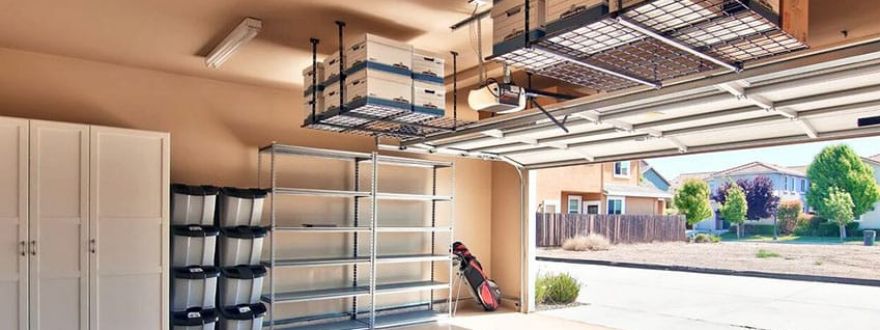
Wondering what not to store in the garage? Some items might surprise you. Learn more about what can stay and what should be stored elsewhere.
Skis. Bikes. Sports balls of all sorts. A lawnmower. Old toys. It’s easy for a garage to turn into a catchall storage unit For most items that’s fine, but some things simply don’t belong in a garage, and they can even become a home hazard without proper storage protection This list of common red-flag items can help identify what doesn’t belong in the garage.
What you should not store in your garage
- Extra fuel: Stashing portable gas cans and propane tanks in the garage can be dangerous: Highly flammable fuel poses a leaking risk. If you store any fuel in the garage, do so only in dedicated, leak-proof containers out of the reach of children and out of the paws of pets and away from protentional sources of fire ignition such as water heaters or power tools. A shed away from your home is a better storage spot.
- Paint or home-improvement chemicals: Some liquids, such as latex, freeze at the same temperature as water. Others may need a temperature-controlled environment. Check the manufacturer’s directions for guidance.
- Furniture: Unless your garage is climate-controlled, its interior is subject to wild swings in heat and humidity. This, in turn, can warp wood, and pests such as rodents may root (and ruin) upholstery, fabric or mattresses. If the garage offers your only option for furniture storage, find a clean, dry spot that’s elevated off the floor. Then thoroughly clean and take apart furniture before wrapping or covering.
- Clothing: A better spot for out-of-season clothing is a sealed container in the attic or the back of the closet. In a garage, clothing may soak up fumes and dust and be at risk of insect or pest damage.
- Food: This means any food — food for birds, for pets and for humans. Perishable items are far too tempting for rodents and vermin, and canned food may spoil more quickly in temperature extremes. And think twice about that extra fridge in an unheated and un-air-conditioned garage, the appliance may struggle to operate efficiently as temperatures fluctuate.
- Anything fragile or valuable: Photographs, artwork and electronics are just a few of the items that need the stability of climate control so expensive or delicate elements aren’t damaged. Remember, if you couldn’t bear to see it lost or destroyed, then it probably shouldn’t be in the garage.
What should you store in a garage
- Lawn care tools and equipment: The garage is an ideal place to store the tools and equipment you only use outside. If it becomes too crowded, consider a storage shed.
- Gardening supplies: Extra pots, bags of potting soil and your small garden tools can neatly be stored in bins.
- Plastic storage bins: Plastic bins rather than cardboard boxes help protect your items and are more resistant to the changing temperatures and moisture levels.
- Hoses: After draining your garden hose, place them in the garage to store them out of the way for the winter.
- Sports equipment: Equipment made to be used outdoors can easily be stored in the garage without having to worry about warping or cracking.
- Patio furniture and pool tools: These items can get messy so be sure to stack and store them neatly when not being used.
- Cars, of course.
Also, after cleaning up and reorganizing your garage, take time to review what’s under your sink.



